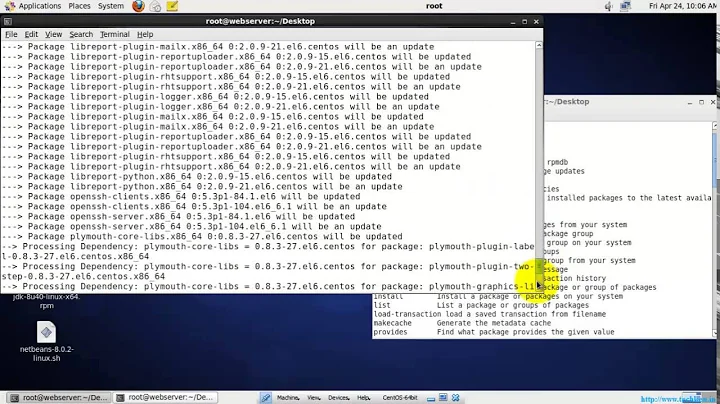Linux repositories. Ubuntu apt-get and centOS yum
The built-in repositories will always be trusted/trustworthy.
Debian based (Ubuntu) and RedHat (CentOS) based are indeed different.
Even professionals still have to web-search.
You can try finding packages available with commands like apt-cache search and yum search.
basic examples:
apt-cache search "http server"
yum search "http server"
better examples:
apt-cache search httpd | grep "HTTP [Ss]erver\|[Ww]eb.*[Ss]erver"
apt-cache showpkg httpd | awk '/Pa/, /Reverse P/ {next} {print $1 | "sort -u"}'
yum provides webserver
You may prefer aptitude over apt-*. For example you can both search and install with aptitude: aptitude search apache2 and aptitude install apache2.
Sometimes you want to find out more information: yum groupinfo "Web Server" or yum info httpd or aptitude show apache2.
You are correct to realize that it will be much trial and error, and many web-searches.
Related videos on Youtube
Admin
Updated on September 18, 2022Comments
-
 Admin over 1 year
Admin over 1 yearI am new to VPS and when I want to install something in Ubuntu16.04 or CentOS7 I need to google it and hope it's written somewhere how to install it through apt-get or yum and then hope it is a good repository. Then even the same project has differences between those 2. For example you have httpd in yum and apache2 in apt-get ( it's not just the name they are different ).
Is there some sort of github where I can check reputation of repositories, official documentation on how to install and so on? Or is it something I will need to learn by trial and error?




